第78章
In man males are more often born defective than females, but in the other animals this is not the case.The reason is that in man the male is much superior to the female in natural heat, and so the male foetus moves about more than the female, and on account of moving is more liable to injury, for what is young is easily injured since it is weak.For this same reason also the female foetus is not perfected equally with the male in man (but they are so in the other animals, for in them the female is not later in developing than the male).For while within the mother the female takes longer in developing, but after birth everything is perfected more quickly in females than in males; I mean, for instance, puberty, the prime of life, and old age.For females are weaker and colder in nature, and we must look upon the female character as being a sort of natural deficiency.Accordingly while it is within the mother it develops slowly because of its coldness (for development is concoction, and it is heat that concocts, and what is hotter is easily concocted); but after birth it quickly arrives at maturity and old age on account of its weakness, for all inferior things come sooner to their perfection or end, and as this is true of works of art so it is of what is formed by Nature.For the reason just given also twins are less likely to survive in man if one be male and one female, but this is not at all so in the other animals; for in man it is contrary to Nature that they should run an equal course, as their development does not take place in equal periods, but the male must needs be too late or the female too early; in the other animals, however, it is not contrary to Nature.A difference is also found between man and the other animals in respect of gestation, for animals are in better bodily condition most of the time, whereas in most women gestation is attended with discomfort.Their way of life is partly responsible for this, for being sedentary they are full of more residual matter; among nations where the women live a laborious life gestation is not equally conspicuous and those who are accustomed to work bear children easily both there and elsewhere; for work consumes the residual matter, but those who are sedentary have a great deal of it in them because not only is there no monthly discharge during pregnancy but also they do no work; therefore their travail is painful.But work exercises them so that they can hold their breath, upon which depends the ease or difficulty of child-birth.
These circumstances then, as we have said, contribute to cause the difference between women and the other animals in this state, but the most important thing is this: in some animals the discharge corresponding to the catamenia is but small, and in some not visible at all, but in women it is greater than in any other animal, so that when this discharge ceases owing to pregnancy they are troubled (for if they are not pregnant they are afflicted with ailments whenever the catamenia do not occur); and they are more troubled as a rule at the beginning of pregnancy, for the embryo is able indeed to stop the catamenia but is too small at first to consume any quantity of the secretion; later on it takes up some of it and so alleviates the mother.In the other animals, on the contrary, the residual matter is but small and so corresponds with the growth of the foetus, and as the secretions which hinder nourishment are being consumed by the foetus the mother is in better bodily condition than usual.The same holds good also with aquatic animals and birds.If it ever happens that the body of the mother is no longer in good condition when the foetus is now becoming large, the reason is that its growth needs more nourishment than the residual matter supplies.(In some few women it happens that the body is in a better state during pregnancy;these are women in whose body the residual matter is small so that it is all used up along with the nourishment that goes to the foetus.)